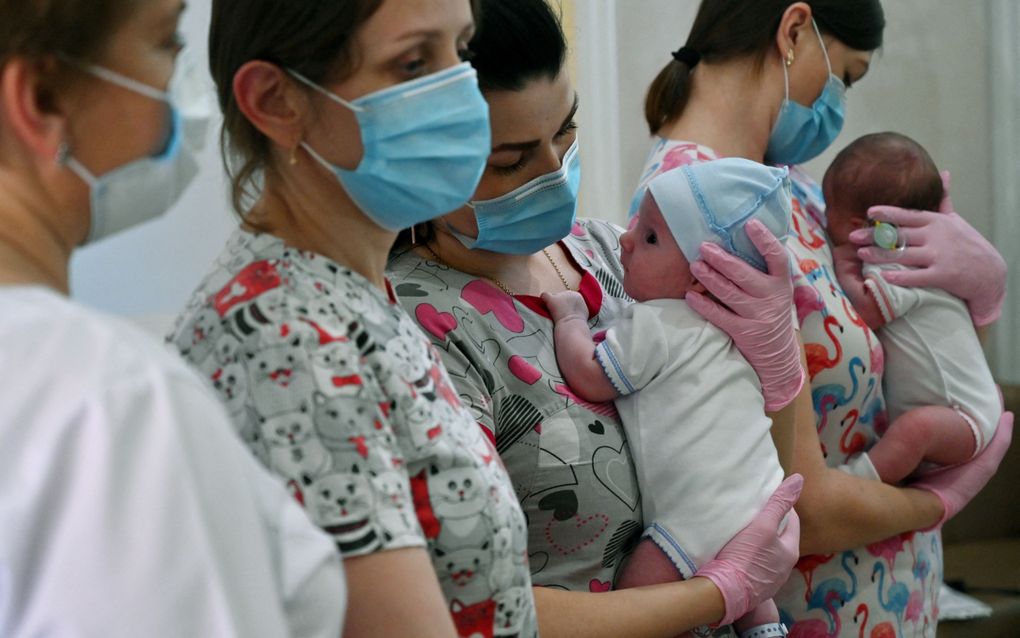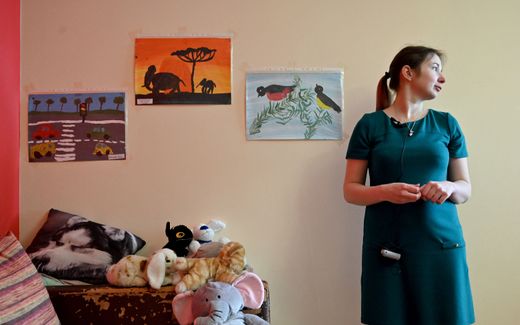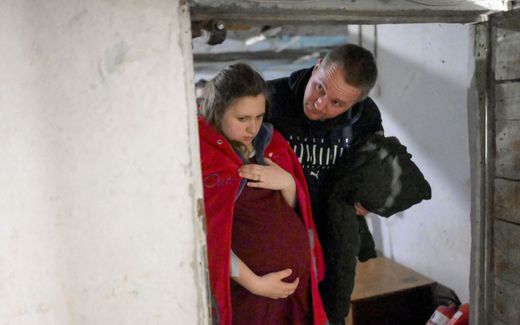Four questions about how surrogacy functions in Europe

Photo AFP, Sergei Supinsky
European Union
The Italian right-wing politician Matteo Salvini initiatied a popular bill to limit surrogacy in Italy. It comes at a time of growing criticism towards these ‘wombs for hire’.
Salvini, party leader of governing party Lega (League), said that assisted fertilisation is a “business worth six billion euros a year that must be stopped in every possible way. According to him, women in this business are seen as an object, and their children are sold as a commodity. Therefore, he wants to strengthen Italian law by forbidding anyone to commission, create, organise, or advertise surrogacy. He also wants to make it possible to convict someone who went abroad to get a surrogate child.
How does a citizens’ initiative in Italy work?
Italian citizens can present a bill to their parliament that will be discussed and voted for. They, therefore, need their legal proposal to have the support of at least 50,000 Italian citizens. Their support is collected through gathering signatures.
Salvini is now trying to get these signatures. On Twitter, he called the industry “barbarism on the bodies of women at the cost of babies” and requested the public’s help.
What is the general view on surrogacy in Italy?
Surrogacy in Italy is strictly prohibited. However, Italian citizens can get their surrogacy child from abroad. This is a practice that is done quite often.
Salvini’s position on surrogacy has been clear for quite some time. In December, he commented that in surrogacy, “someone tries to select the race, the blond children, the blue eyes. Practices that remind me of Nazism. Currently, there is a 6 billion business in this. You have to have the courage to say this.” The Lega party leader’s current initiative is supported by several Catholic organisations across the country, who are also very critical of surrogacy.
Other people and organisations do not necessarily see a problem with it, as long as women choose freely to rent out their wombs. The Luca Coscioni Association for Freedom of Scientific Research, an organisation that organised a petition for the legalisation of assisted suicide last year, calls the initiative “an insult to the thousands of people in our country who want to start a family and have children, but for various reasons cannot carry on a pregnancy”.
How do other European countries view surrogacy?
In most countries, surrogacy is forbidden, although it is often possible to receive a child from abroad. In some countries, such as the Netherlands, surrogacy is permitted when it is not commercial. People may reimburse the expenses of a surrogacy mother, but it is illegal to advertise surrogacy and promote it for commercial purposes.
Earlier this month, the Spanish Court of Justice ruled that surrogacy contracts are not valid because they “seriously violate the fundamental rights recognised in our Constitution and the UN Convention on the Child’s Rights.” Unacceptable, the judges found. “Both mother and child are treated as mere objects and not as persons endowed with the inherent dignity and fundamental rights associated with their humanity.”

Surrogacy is forbidden by law in Spain, but couples can travel abroad to hire a surrogacy mother in countries where the practice is allowed. The court acknowledged the inconsistency and added to the ruling that children can be integrated into families, but only through adoption.
Are there European countries where surrogacy is legal?
There are. In Ukraine, Belarus and Russia, surrogacy is legal. However, in Russia, a group of parliamentarians recently submitted a bill under which surrogacy programs will only be available to Russian citizens in Russia. The Russian Orthodox Church recently said that all children born to surrogate mothers should remain in Russia.
Ukraine is a popular destination for people looking for surrogacy mothers. Every year, over 2000 children are born through surrogacy, the majority to foreigners. The country has around 50 reproductive clinics. Because of the war, these surrogacy mothers are often caught between their wishes to leave the country or go to more dangerous places to be with family and their contracts. When surrogacy children are born outside Ukraine, the legal situation of the mother and the paying customer changes and their contracts could become invalid.
In Georgia, however, the rules are similar to those in Ukraine. That country is only less known for its surrogacy than Ukraine. However, because of the war in Ukraine, Georgia seems to be a logical second option for surrogacy.
Related Articles






